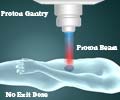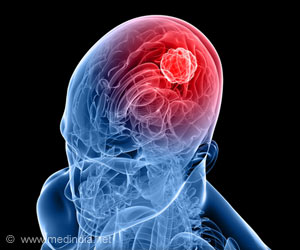
‘The tumor-selective nature of 4-demethyl-4-cholesteryloxycarbonylpenclomedine DM-CHOC-PEN limited the off-target toxicities.’





Long-term side effects are a significant issue for these patients, so the development of well-tolerated therapeutics is important to this community.About 10 percent of AYA cancers involve the central nervous system as either a primary tumor or a metastasis. The blood-brain barrier prevents many drugs from penetrating these tumors, limiting current therapeutic options to surgery, radiation, and select chemotherapies.
Researchers had previously developed a drug 4-demethyl-4-cholesteryloxycarbonylpenclomedine (DM-CHOC-PEN,) which damages DNA by placing alkylating groups on guanine and cytosine bases.
This drug also crosses the blood-brain barrier and is selectively taken up by a transporter often overexpressed in cancer cells.
In this trial, the researchers enrolled 19 AYA patients with tumors that either began in or metastasized to the central nervous system.
Advertisement
They observed complete responses in two patients, partial responses in three patients, and stable disease in one patient. Three patients with the responsive disease are still undergoing treatment at 12, 59, and over 72 months.
Advertisement
Based on this, researchers suggested that the lack of toxicities could bode well for its tolerability in combination with other treatments.
Additionally, they found that DM-CHOC-PEN has a longer half-life in the plasma of AYA patients than in the plasma of patients over 60; it was detectable for up to 50 days in AYAs but less than 21 days in older individuals, suggesting a prolonged effect in younger patients.
Limitations of this study include the small sample size, as well as the exclusion of patients with abnormal blood counts or debilitating comorbidities.
Source-Medindia














